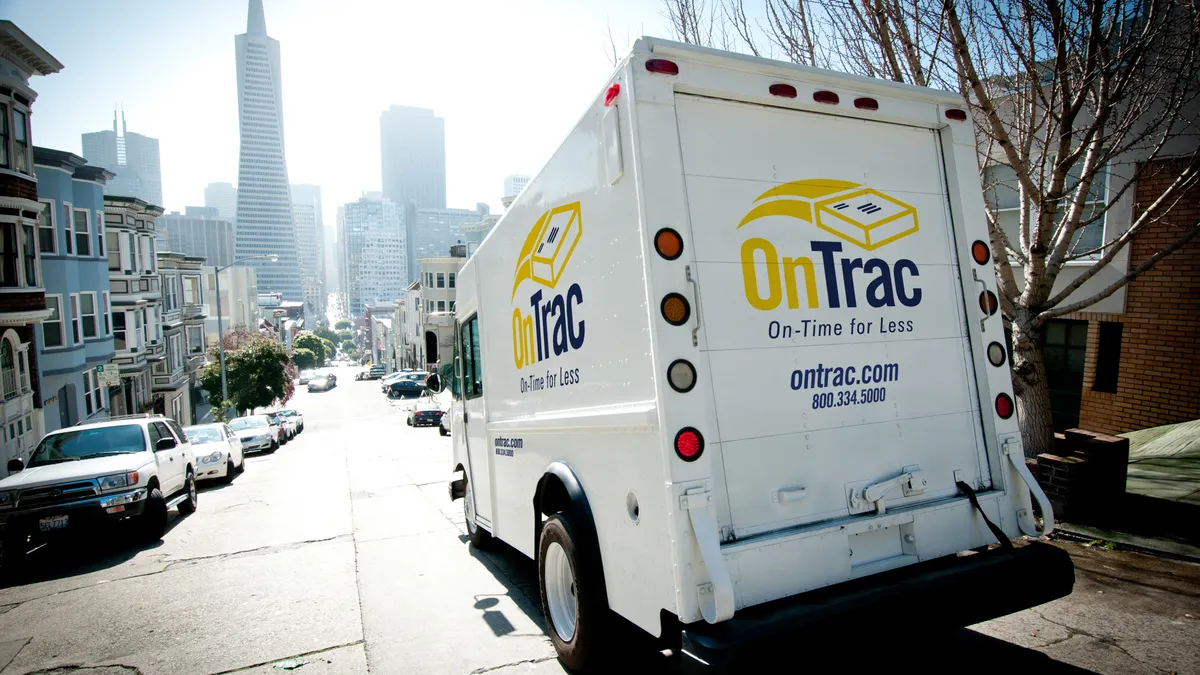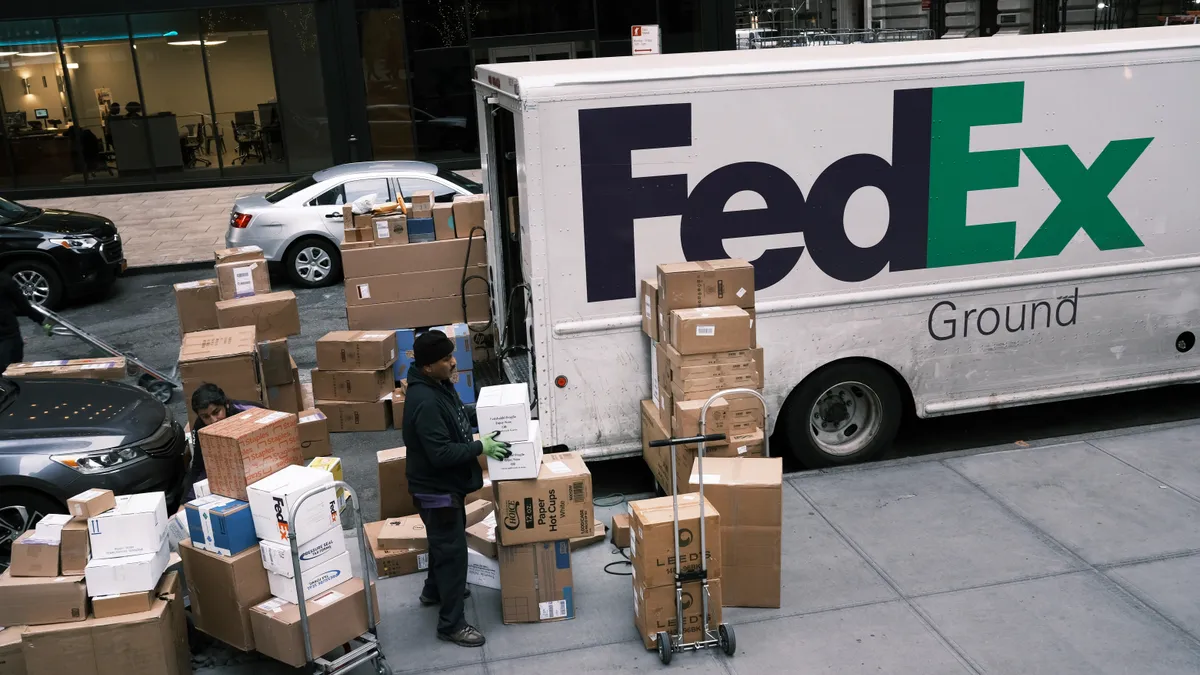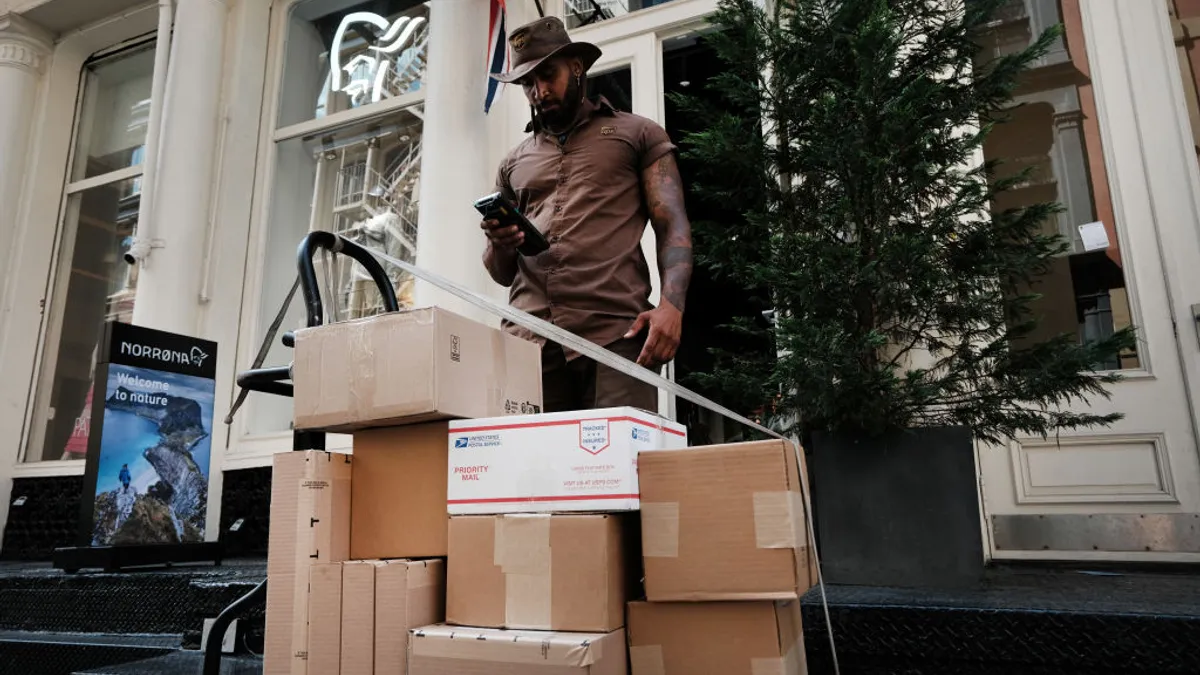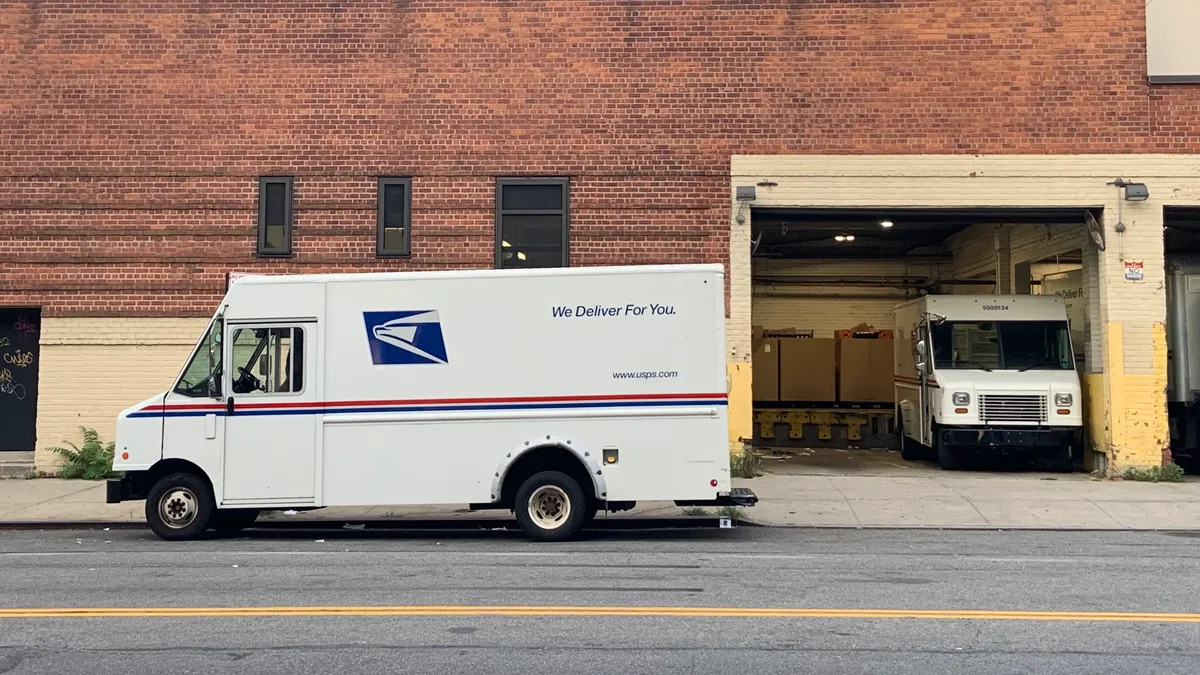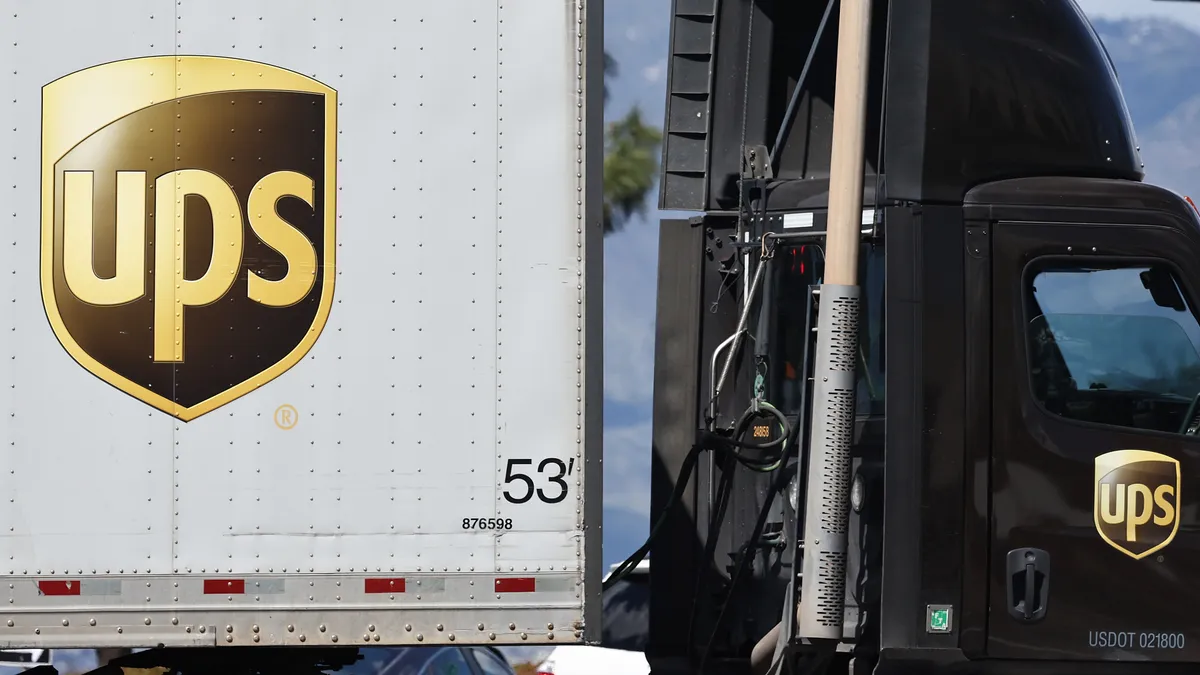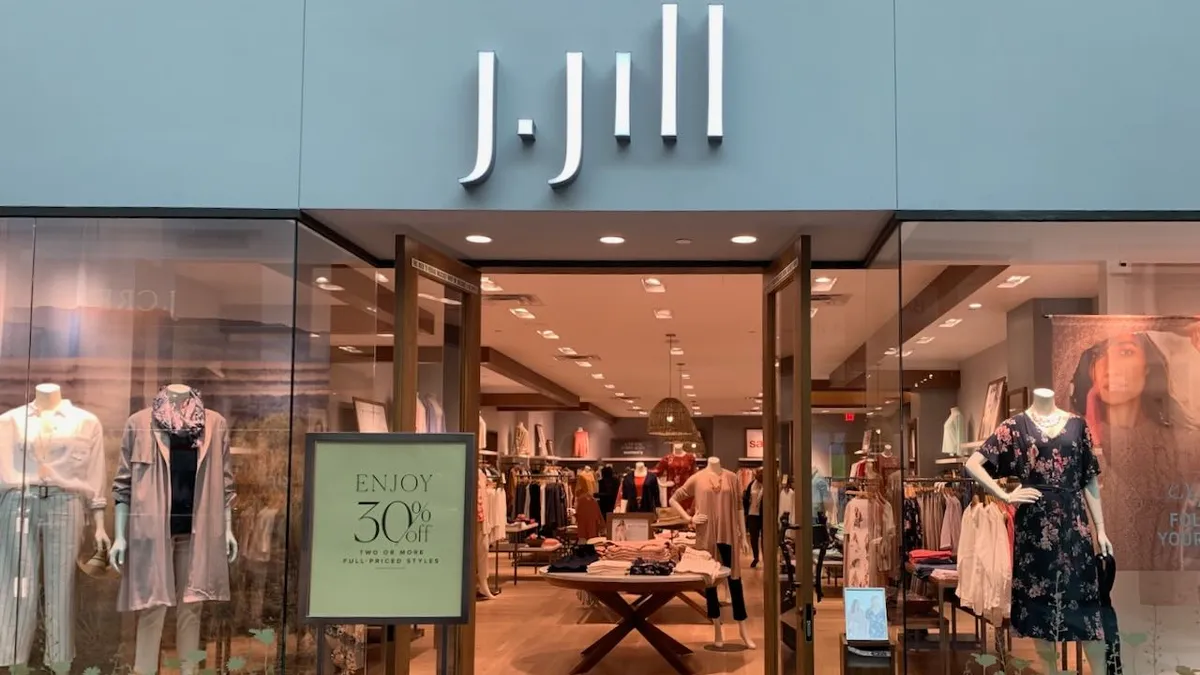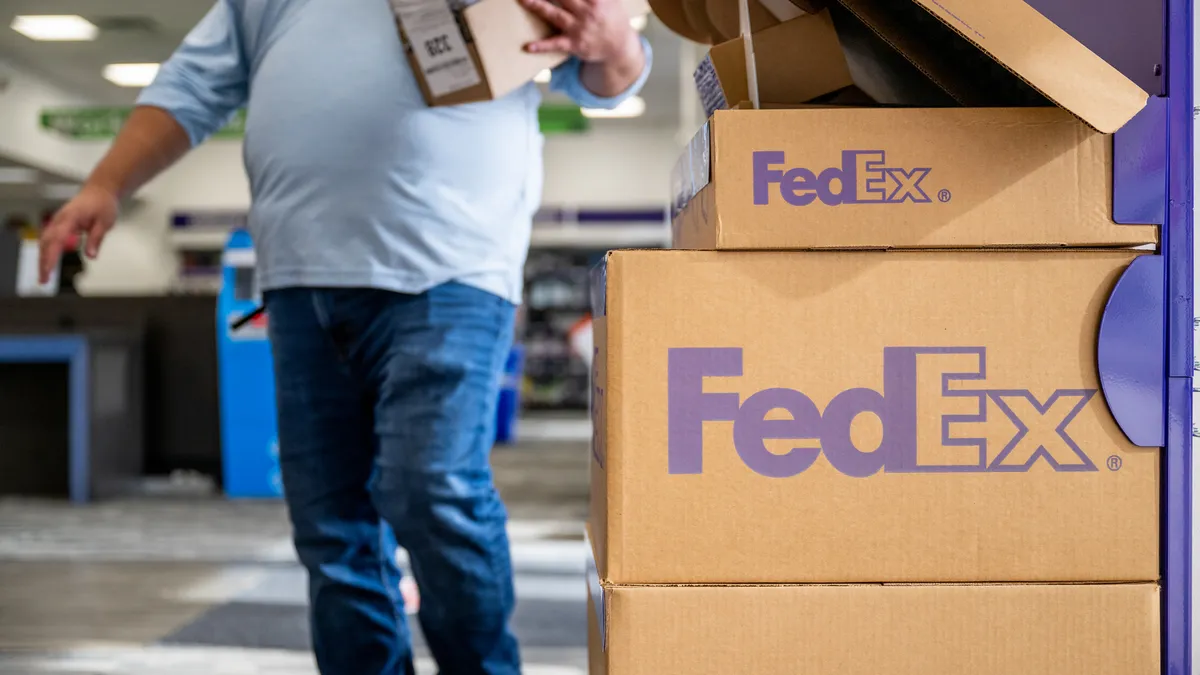FedEx and UPS have held a tight grip on the U.S. parcel delivery market for ages. But the way Shipware founder and co-CEO Trevor Outman sees it, a combined LaserShip and OnTrac could introduce a new national competitor to the mix.
"The Lasership acquisition of OnTrac represents the beginning of a shifting landscape that will ultimately put pricing pressure back on FedEx and UPS," Outman said in an email.
LaserShip's $1.3-billion deal for OnTrac gives it delivery coverage on both U.S. coasts. In a news release, the companies said the two will form "a leading national network and solution" for shippers. The most obvious path forward, then, is to expand its delivery coverage to fill out the middle of the country, according to industry experts.
LaserShip-OnTrac network covers both US coasts
The journey to a third parcel delivery company with nationwide coverage is a daunting one, requiring heavy investments in sorting hubs, linehaul infrastructure and labor. But there's no time like the present for an upstart to pursue that goal.
The LaserShip-OnTrac deal comes as interest in carriers outside the FedEx-UPS duopoly has grown. Shippers have encountered surcharges, service issues and capacity constraints with the two companies as an unprecedented surge in package volume flooded their networks.
To adapt, shippers are diversifying their carrier bases instead of sticking exclusively with FedEx or UPS. Shipware estimates 70% of its clients today are interested in using regional carriers, up from 25% two years ago.
"FedEx and UPS have created an environment that have their customers looking for alternatives," Outman said.
Linehaul capabilities crucial for national expansion
Today, LaserShip serves 22 states in the Eastern and Midwestern U.S., plus Washington, D.C., reaching about 150 million customers. OnTrac delivers to every address in California and the major metropolitan areas of seven other Western states. Major Midwest markets like Chicago and Texas could be next, experts say.
But competing with FedEx and UPS requires more than last-mile delivery coverage. The linehaul infrastructure to move volume over long distances is critical, allowing LaserShip's customers to to move East Coast volume to the West Coast. Today, OnTrac relies on large shippers to linehaul volume into their network, and LaserShip would be able to reduce this dependency, said Nate Skiver, founder of consulting firm LPF Spend Management, in a LinkedIn post.
An expansion of linehaul capabilities for the combined network would be a big plus for e-commerce retailers with a national customer base, said Shipium CEO and co-founder Jason Murray in an email. That's a customer base LaserShip and OnTrac have a high interest in — the companies' news release touted the combination as the only pure-play last-mile delivery network for e-commerce retailers.
"If a retailer had inventory in California that needed to be delivered in New York, regionals had little value because of the long-haul middle mile requirement," Murray said. "But with this merger, you can see a future where LaserShip+Ontrac take care of cross-national transport between their regional networks, thus turning them into a true ‘national carrier' option for most of the U.S. customer base population."
Growth of local volume plays into regionals' hands
LaserShip and OnTrac still have a long way to go to reach that true national carrier alternative, as its delivery coverage and infrastructure remain well short of FedEx and UPS. Expanding its network to reach those heights, be it through acquisitions, organic growth or a combination of the two, will take time.
But those shortcomings versus the national carriers may play to the regionals' benefit in a time when speedy delivery is in high demand. LaserShip's focus is on same-day and next-day e-commerce shipping, which calls for products to be close to the end customer to keep service levels high. Amazon's nationwide buildout of delivery stations demonstrates the importance of this approach.
"We are at the beginning of a shift in package delivery, where local and regional volume will continue to grow as a percentage of total (with inventory moving closer to demand)," Skiver said. "This decreases the value of a national, integrated network (another reason Lasership doesn't need immediate national coverage)."
The spike in e-commerce volume isn't expected to fade any time soon, meaning last-mile delivery companies will have to adjust their networks accordingly, if they haven't already.
Satish Jindel, president of SJ Consulting Group, said FedEx and UPS should be thinking about how to restructure their networks to handle the surge in a profitable way instead of shifting their focus to other kinds of deliveries, because LaserShip and OnTrac are already there.
"The companies that need to pay more attention to this transaction are the two major competitors: FedEx and UPS," Jindel said.



